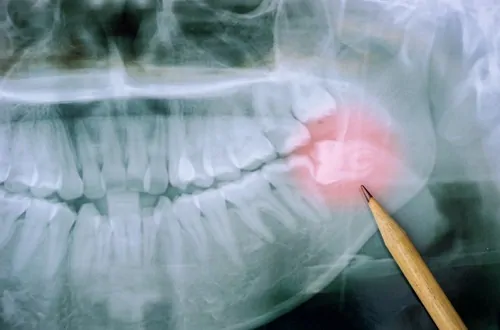Blog
Do I Really Have to Get My Wisdom Teeth Taken Out?

Extracting wisdom teeth is an incredibly common procedure. In fact, over 90% of Americans have their wisdom teeth removed. While there are some occasions when wisdom teeth surgery isn’t necessary, more often than not, it’s recommended to prevent additional problems and pain in the future. Let’s take a look at why so many Americans have their wisdom teeth removed and why our dental office in Douglasville may recommend it for you.
There’s Not Enough Room
Perhaps the most common reason your dentist in Douglasville may recommend having your wisdom teeth taken out is that there simply isn’t enough room for these four teeth to fit. If there’s not enough room in your mouth and the teeth are allowed to erupt anyway, other teeth may shift, and this can cause additional problems. For example, you may need orthodontics to correct any overcrowding or crookedness that may occur. Your bite can also be affected by overcrowding, which can lead to jaw pain, headaches, and neck pain.
Impacted Wisdom Teeth
Another problem with not having enough room for wisdom teeth to erupt properly is that they can get stuck developing in the bone. This is referred to as having impacted wisdom teeth. Once the teeth are impacted, treatment tends to become more complicated, so it’s best to catch any potential problems with wisdom teeth and remove them early. If your wisdom teeth become impacted, your Douglasville dentist will talk to you about the most appropriate treatment to help.
Wisdom Teeth Are Hard to Take Care of
Wisdom teeth, also known as third molars, are situated all the way in the back of the mouth. Because of this positioning, it can be difficult to reach them with a toothbrush and floss. When not cleaned thoroughly, bacteria can linger around and increase the risk of cavities and even gum disease.
Seeing the dentist at least every six months is important for everyone, but especially for those who are in the prime years of wisdom teeth development, usually between the ages of 17 and 25. At your visits, your dental team can keep an eye on your wisdom teeth development through regular x-rays and make the appropriate treatment recommendation for you when it’s the right time.
If your regular checkups at our dental office in Douglasville show that your wisdom teeth are putting you at risk for impaction or greater problems later on, we will probably recommend having them removed to keep your mouth in its best, healthiest shape.
The Importance of Healthy Gums

Often we think of a healthy mouth as straight, white teeth. But the truth is, a healthy mouth goes beyond our smiles. Our gums are easily overlooked when it comes to talking about our oral health. However, our gums are crucial to not only our mouths but to our overall health. At our dental office in Douglasville, we strive to educate our patients about the importance of healthy gums, so in this blog, we’re going to talk about just how serious of a role our gums play in our bodies.
Gum Disease
When we don’t take care of our gums, we can develop a serious condition called gum disease. Gum disease is caused by a buildup of plaque. Plaque is loaded with dangerous bacteria that if not removed, can lead to infection of the gums. This infection is gum disease. There are three stages of gum disease — gingivitis, periodontitis, and advanced periodontitis.
Gingivitis – This is the earliest stage of gum disease and can be treated.
Periodontitis – If gingivitis is left untreated, it can progress into periodontitis when the disease starts to affect the bones holding our teeth in place.
Advanced Periodontitis – As periodontitis gets worse, it can turn into advanced periodontitis. If this happens, the bones supporting our teeth are beginning to break down, and we may experience tooth loss.
Gum Disease & Your Body
The bacteria that cause gum disease can also lead to other serious problems in the body. In fact, many research studies have shown a correlation between gum disease and several health conditions, such as:
- Lung Disease
- Cancers
- Heart Attacks
- Strokes
Signs of Gum Disease
- Gums that bleed during and after tooth brushing
- Red, swollen, or tender gums
- Persistent bad breath or a bad taste in the mouth
- Receding gums
- Loose or shifting teeth
In the early stages, gum disease may not necessarily show any signs. This is why appointments with your dentist in Douglasville every six months are so important. Your dental team is trained to look for early warning signs of gum disease so they can recommend treatment quickly. Early diagnosis is key to successful treatment.
If it’s been more than six months since your last visit or you notice any signs of gum disease, call our dental office in Douglasville to schedule a visit.
